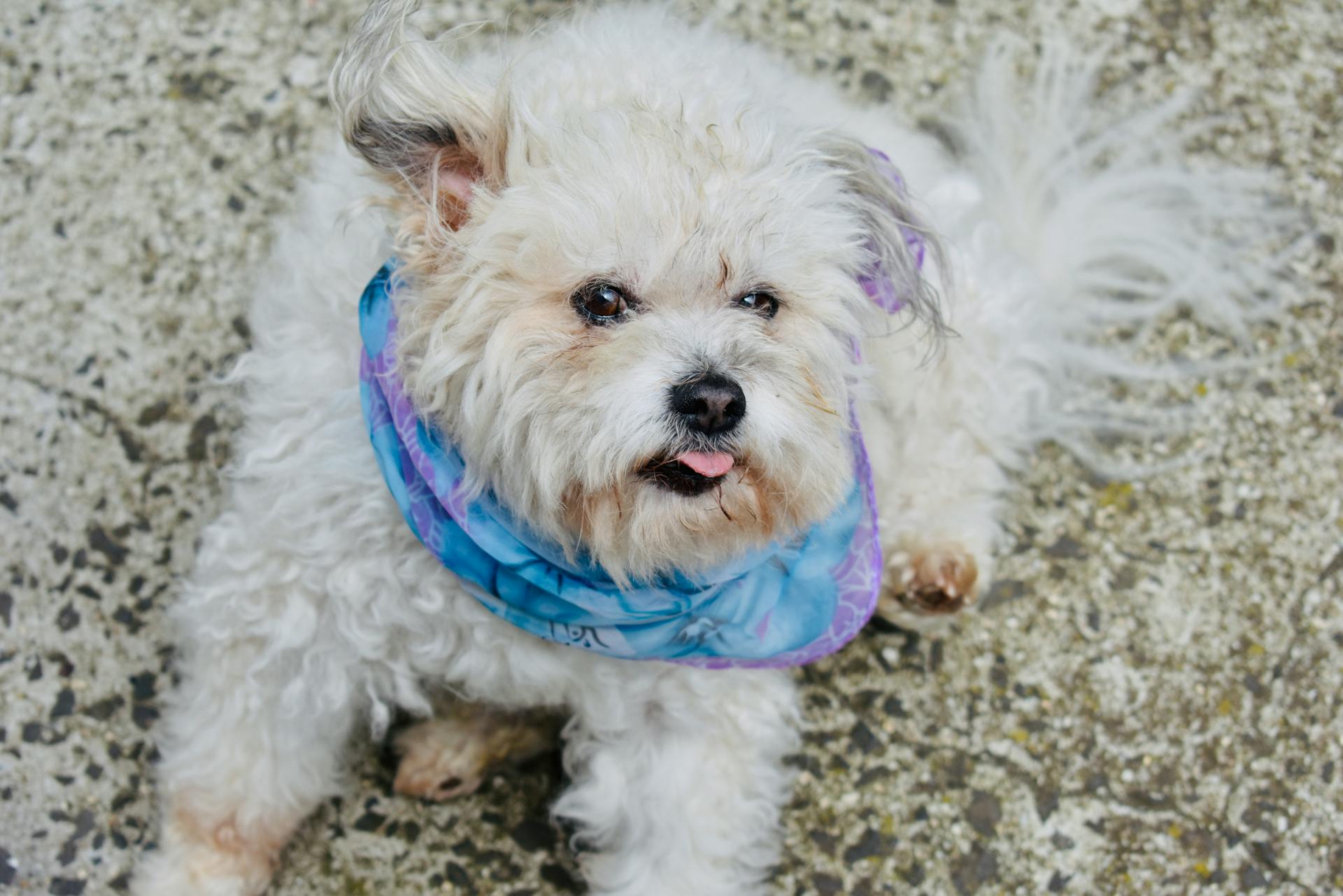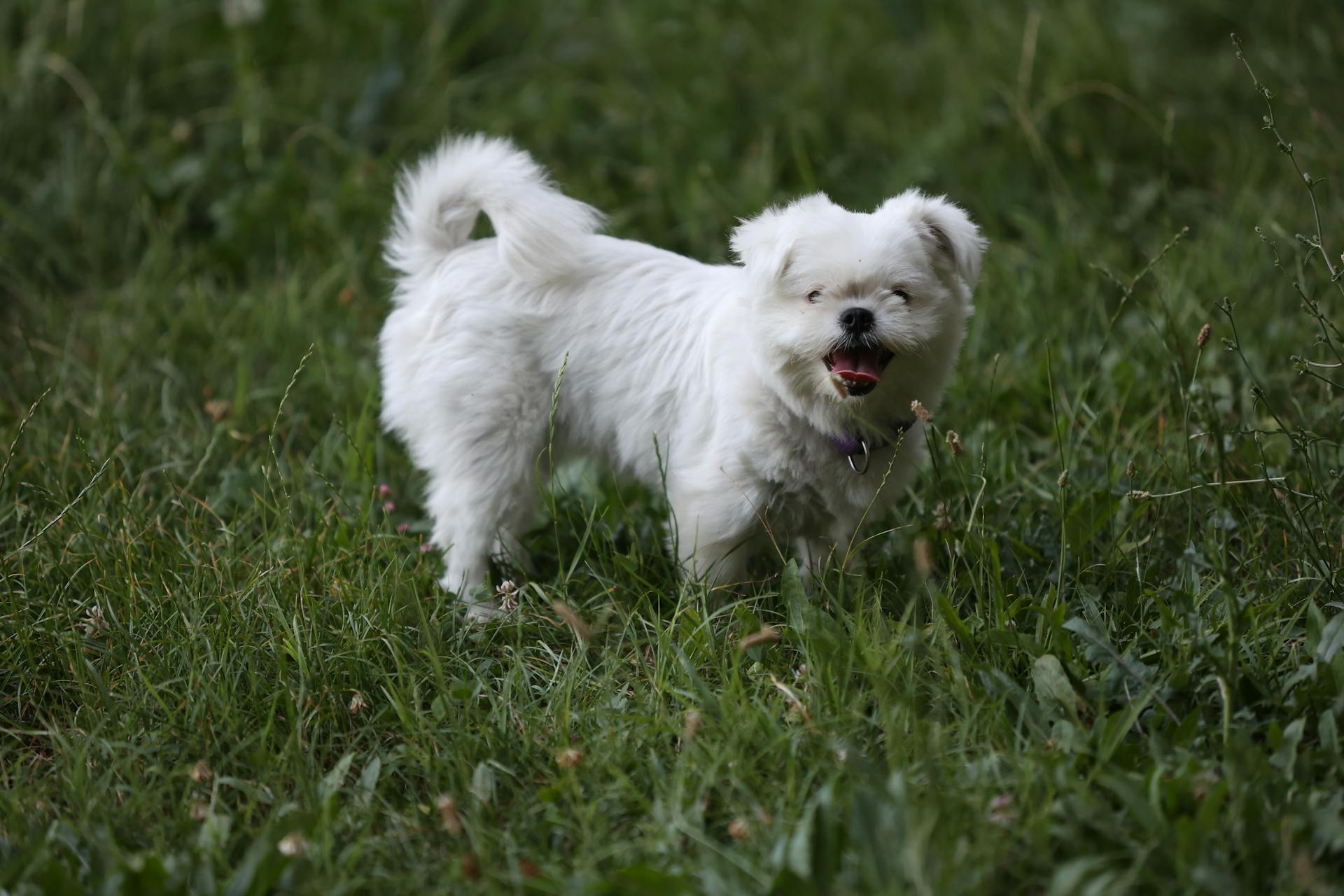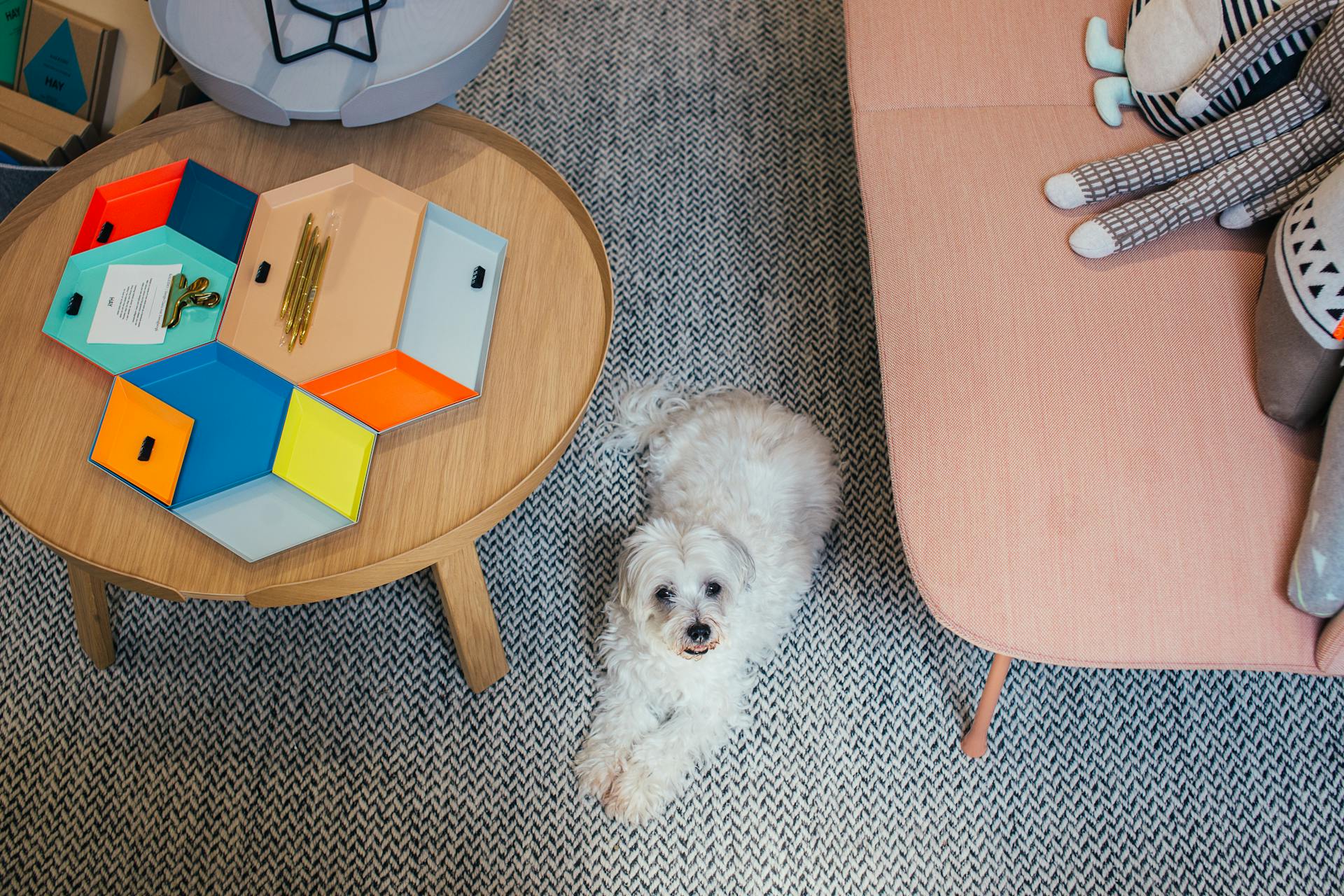
Training a Maltese dog requires patience, consistency, and positive reinforcement. They are intelligent and active dogs that thrive on structure and clear boundaries.
Maltese dogs are naturally social and love human interaction, but they can be wary of strangers and new environments. This makes early socialization crucial to prevent anxiety and fear-based behaviors.
Establishing a routine is key to a well-behaved Maltese dog. Feeding times, exercise, and playtime should be consistent to help them feel secure and develop good habits.
Training Techniques
Training your Maltese puppy requires consistency and clear communication. Consistency is key, so ensure everyone in your household is on the same page and using the same commands and rewards.
Using positive reinforcement techniques is highly effective for training Maltese puppies. This approach focuses on rewarding desired behaviors with treats, praise, and other positive stimuli.
To start, begin teaching your puppy basic obedience commands like "sit", "stay", and "come" as early as possible. Early training helps establish clear boundaries and expectations.
Use clear and simple commands that are easy for your puppy to understand, such as "sit", "stay", "down", and "come." Avoid using multiple words for the same command, as this can confuse your puppy.
Here are some essential commands to teach your Maltese puppy: "Leave It" to instruct your puppy not to touch something"Drop It" for situations where your puppy has already picked up an object they shouldn’t have Be patient and use positive reinforcement to help your puppy grasp these crucial commands.
Puppy Schedule
A consistent schedule is crucial for a Maltese puppy's training and well-being. It helps regulate their bathroom habits and ensures they receive regular care and attention.
To create a schedule, you must consider your puppy's small stomach and bladder. They can't "hold it" for long periods, so walking them regularly is a must. Feed your puppy, then walk them roughly 10 to 20 minutes after they've eaten.
A consistent feeding schedule is essential to regulate your puppy's bathroom habits. Puppies typically need to go after eating, drinking, waking up from a nap, or playing. Take them to the designated potty area at these times, as well as after any intense play sessions.
Here's a sample schedule to help you get started:
Remember, consistency is key when it comes to a Maltese puppy's schedule. Stick to it, and you'll be well on your way to raising a well-behaved and well-trained companion.
Positive Reinforcement
Positive reinforcement is a powerful tool in puppy training, and it's especially effective for Maltese puppies due to their intelligence and desire to please their owners. It focuses on rewarding desired behaviors with treats, praise, and other positive stimuli, reinforcing those behaviors and encouraging their repetition.
By using positive reinforcement, you can encourage your Maltese puppy to learn and repeat good behavior, such as sitting, staying, and coming when called. This approach helps build trust and a strong bond between you and your puppy, making training sessions a positive experience for both of you.
Maltese puppies are highly sensitive, and positive reinforcement methods minimize stress and anxiety during training sessions, helping them feel secure and confident. In fact, studies have shown that positive reinforcement can reduce anxiety and increase cooperation in puppies.
One of the key benefits of positive reinforcement is that it encourages willing cooperation from your puppy. By providing clear rewards and praise for good behavior, you can help your Maltese puppy understand what you expect and what actions will result in rewards.
Here are some effective positive reinforcement techniques to try with your Maltese puppy:
• Use treats, praise, and playtime to reward good behavior
• Be consistent and clear in your expectations
• Use simple, one-word commands to avoid confusion
• Provide plenty of praise and affection when your puppy performs well
• Be patient and celebrate small successes along the way
Remember, positive reinforcement is a long-term strategy that requires patience, consistency, and creativity. With time and practice, you can help your Maltese puppy develop good habits and a strong bond with you.
Distractions
Distractions can be a major challenge when potty training your Maltese. Maltese puppies are easily distracted by their surroundings, making it hard to keep their focus on eliminating outdoors.
To minimize distractions, it's essential to establish a designated potty area in your yard and consistently use it for bathroom breaks. This spot should be easily accessible and preferably in a quiet area of your yard.
Choose a specific spot and use it every time you take your Maltese outside. Consistency is key in potty training.
To keep your Maltese focused, keep outdoor potty trips short and to the point. This will reduce the time for distractions and make the process more efficient.
Here are some tips to help you keep your Maltese on track:
- Use a leash to guide your Maltese to the designated area, limiting their freedom to roam.
- Avoid engaging in play or extended outdoor activities during potty breaks until they've finished their business.
By following these tips, you can help your Maltese overcome distractions and learn to focus on the task at hand.
Behavioral Issues
Behavioral issues can be a challenge to address in Maltese dogs. It's frustrating to see your pup ignore commands and engage in unwanted behaviors like chewing on furniture.
Traditional dog training may not be effective for every dog, as seen in the case of Angel, who continued to misbehave even after attending training classes. This is because many dog training books and methods are not tailored to specific breeds, like the Maltese.
Redirecting unwanted behaviors towards positive alternatives can be a more effective approach. For example, offering a chew toy instead of punishing your Maltese for biting on furniture or shoes.
Be Patient with Your
Patience is an essential virtue during training sessions. Every puppy is different, and some may take longer to learn than others.
Your puppy is still learning and might not get everything right away. Stay calm and composed during training sessions.
Give your puppy the time they need to grasp new commands.
Correcting Worst Behavioral Problems
Correcting Worst Behavioral Problems is a must when you have a misbehaving pup at home. It's not just about punishing the bad behavior, but redirecting it towards something positive. According to dog training experts, redirecting unwanted behaviors is a great way to discourage negative behavior and teach your pup what's acceptable.

Punishing your Maltese for unwanted behaviors won't work in the long run, so it's essential to offer a positive alternative. For example, if your puppy is biting furniture or shoes, give them a chew toy instead. This approach will help your pup understand what's allowed and what's not.
Redirecting unwanted behaviors requires patience and understanding. It's not a one-time fix, but a process that takes time and effort. You need to stay calm and composed during training sessions, and give your puppy the time they need to grasp new commands. As the article notes, every puppy is different, and some may take longer to learn than others.
Supervising your puppy closely is also crucial in correcting worst behavioral problems. Keep an eye on your pup when they're indoors, and recognize the signs that they need to go (sniffing, circling, whining). Take them to the designated potty area promptly, and praise them when they get it right.
Here are some common signs that your puppy needs to go:
- Sniffing
- Circling
- Whining
By recognizing these signs and taking action, you can prevent accidents and correct worst behavioral problems. Remember, patience is key, and it's essential to stay calm and composed during training sessions. With time and effort, you can teach your pup what's acceptable and what's not.
Overstimulation

Overstimulation can be a major obstacle in potty training your Maltese puppy. It's not uncommon for them to get overwhelmed by the outdoor environment, making it difficult for them to focus.
To avoid overstimulation, keep potty trips calm and low-key. This means avoiding loud noises, sudden movements, or exciting activities during bathroom breaks.
Using a consistent command like "Go potty" can help signal the purpose of the outing and keep your Maltese on track.
If your Maltese gets overly excited outside, gently redirect their attention to the potty area. This can help them refocus and do their business.
Here are some specific tips to keep in mind:
- Keep the potty trips calm and low-key.
- Use a consistent command like "Go potty" to signal the purpose of the outing.
- If your Maltese gets overly excited outside, gently redirect their attention to the potty area.
Housebreaking
Housebreaking is a crucial part of training your Maltese dog. It's essential to create a supportive environment that encourages your puppy to learn good habits.
Choose a specific area in your yard for outdoor potty breaks, and make sure it's a consistent location your puppy associates with going to the bathroom.
Establishing a strict routine with frequent, scheduled potty breaks is key to preventing indoor accidents. For young puppies, this means taking them outside every hour.
Pay close attention to your Maltese's body language. If you see signs that they need to go, such as sniffing, circling, or squatting, immediately take them outside.
To clean indoor accidents thoroughly, use an enzymatic cleaner to remove any residual odor that might attract your puppy to repeat the behavior.
Supervise your puppy closely when indoors, and use baby gates or a crate to limit their access to areas where accidents are more likely to occur.
By following these tips, you can help your Maltese puppy learn to go potty outside where they belong.
Socialization
Socialization is a critical aspect of puppy obedience training, and it's essential to expose your Maltese to various environments, people, and other animals to help them develop confidence and learn appropriate behavior in different situations.
Proper socialization can help prevent behavioral issues like aggression and fearfulness in the future.
Start socialization early, ideally from the moment you bring your Maltese puppy home, to establish clear boundaries and expectations.
Early training helps your puppy learn good behavior, making it easier for them to navigate new situations.
Introduce your Maltese to friends and family members of all ages by inviting them to your home or visiting theirs, and don't limit them to just people and dogs you know.
Take regular walks and visit your local dog park to meet even more people, and if your neighbors have dog-friendly cats, ask if you can introduce your Maltese puppy to give them feline friends too.
Maltese dogs were bred to be companion animals, and their loving nature continues to this day, making them happy whenever you are.
Addressing Potential Challenges
Maltese puppies are intelligent and sensitive, making potty training a challenging process. Common challenges include distractions, overstimulation, and indoor accidents.
Distractions can be a major obstacle, especially for Maltese puppies who are easily fascinated by their surroundings. Indoor accidents can be a frustrating consequence of these distractions.
To address distractions, it's essential to create a quiet and focused environment for training. This can be achieved by removing any distracting objects or toys from the training area.
Overstimulation can also hinder the training process, so it's crucial to keep training sessions short and sweet. Maltese puppies have short attention spans, so keeping sessions brief can help prevent overstimulation.
Indoor accidents can be a result of overstimulation or distractions, so it's essential to establish a consistent potty routine and reward good behavior. This can help your Maltese puppy learn to associate going potty outside with positive outcomes.
Tips and Best Practices
Training your Maltese dog should start on Day One, regardless of their age. This sets the foundation for a consistent training schedule that prevents bad habits from developing.
Starting training early also helps your Maltese learn faster, so don't worry if your 12-week-old puppy is ready to learn. In fact, beginning at day one is crucial for their development.
Keep a close eye on your puppy when they're indoors, as they'll often give you signs that they need to go. Recognize these signs, such as sniffing, circling, or whining, and take them to the designated potty area promptly.
Supervising your puppy closely will help you catch any accidents before they happen, making the training process much easier.
Frequently Asked Questions
At what age does a Maltese calm down?
Maltese puppies typically calm down between 6-12 months, but their breed-specific energy levels can vary significantly. Factors like breed and individual temperament play a bigger role in determining a Maltese's calmness than their age or sex.
What are the tips for owning a Maltese?
To ensure a happy and healthy Maltese, prioritize a balanced diet, regular exercise, and daily grooming, including brushing and trimming every 6-8 weeks. By incorporating these habits into your routine, you can help your Maltese thrive and live a long, fulfilling life.
Sources
- https://www.dailypuppy.com/maltese-puppy-training-tips-1110.html
- https://gratefulpaw.com/maltese-training
- https://iheartdogs.com/12-secrets-for-teaching-a-maltese-puppy-obedience/
- https://porchpotty.com/blogs/news/mastering-potty-training-for-highly-intelligent-maltese-puppies
- https://www.hepper.com/how-to-train-a-maltese/
Featured Images: pexels.com


